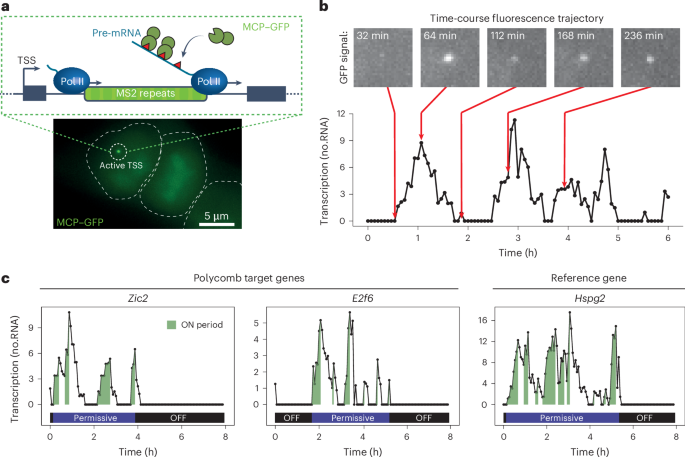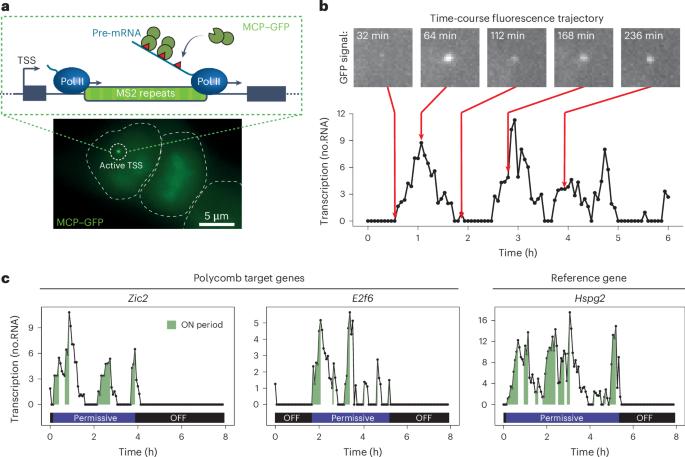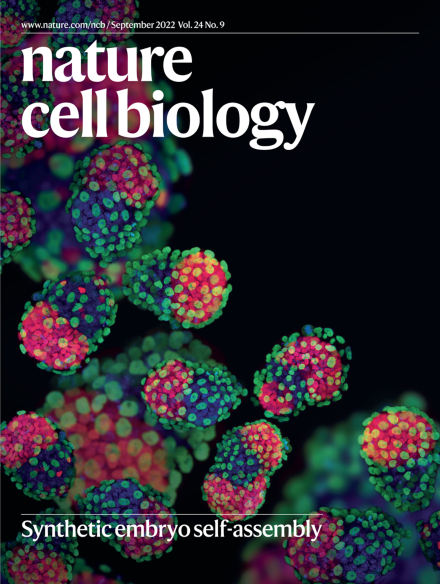The Polycomb system sustains promoters in a deep OFF state by limiting pre-initiation complex formation to counteract transcription
IF 17.3
1区 生物学
Q1 CELL BIOLOGY
引用次数: 0
Abstract
The Polycomb system has fundamental roles in regulating gene expression during mammalian development. However, how it controls transcription to enable gene repression has remained enigmatic. Here, using rapid degron-based depletion coupled with live-cell transcription imaging and single-particle tracking, we show how the Polycomb system controls transcription in single cells. We discover that the Polycomb system is not a constitutive block to transcription but instead sustains a long-lived deep promoter OFF state, which limits the frequency with which the promoter can enter into a transcribing state. We demonstrate that Polycomb sustains this deep promoter OFF state by counteracting the binding of factors that enable early transcription pre-initiation complex formation and show that this is necessary for gene repression. Together, these important discoveries provide a rationale for how the Polycomb system controls transcription and suggests a universal mechanism that could enable the Polycomb system to constrain transcription across diverse cellular contexts. Combining degron-based depletion with live-cell transcription imaging and single-particle tracking, Szczurek et al. show that Polycomb keeps promoters in an OFF state by restricting the formation of the pre-initiation complex.


多角体系统通过限制启动前复合物的形成来抵消转录,从而使启动子处于深度关闭状态
在哺乳动物的发育过程中,Polycomb 系统在调控基因表达方面发挥着重要作用。然而,它是如何控制转录以实现基因抑制的一直是个谜。在这里,我们利用基于去核糖体的快速耗竭,结合活细胞转录成像和单粒子追踪,展示了多聚核糖体系统如何在单细胞中控制转录。我们发现,Polycomb 系统并不是转录的组成性阻断,而是维持一种长效的深度启动子关闭状态,这种状态限制了启动子进入转录状态的频率。我们证明,Polycomb 通过抵消使早期转录启动前复合物形成的因子的结合来维持这种深启动子关闭状态,并证明这是基因抑制所必需的。这些重要发现为多角体系统如何控制转录提供了理论依据,并提出了一种通用机制,可使多角体系统在不同的细胞环境中限制转录。
本文章由计算机程序翻译,如有差异,请以英文原文为准。
求助全文
约1分钟内获得全文
求助全文
来源期刊

Nature Cell Biology
生物-细胞生物学
CiteScore
28.40
自引率
0.90%
发文量
219
审稿时长
3 months
期刊介绍:
Nature Cell Biology, a prestigious journal, upholds a commitment to publishing papers of the highest quality across all areas of cell biology, with a particular focus on elucidating mechanisms underlying fundamental cell biological processes. The journal's broad scope encompasses various areas of interest, including but not limited to:
-Autophagy
-Cancer biology
-Cell adhesion and migration
-Cell cycle and growth
-Cell death
-Chromatin and epigenetics
-Cytoskeletal dynamics
-Developmental biology
-DNA replication and repair
-Mechanisms of human disease
-Mechanobiology
-Membrane traffic and dynamics
-Metabolism
-Nuclear organization and dynamics
-Organelle biology
-Proteolysis and quality control
-RNA biology
-Signal transduction
-Stem cell biology
 求助内容:
求助内容: 应助结果提醒方式:
应助结果提醒方式:


